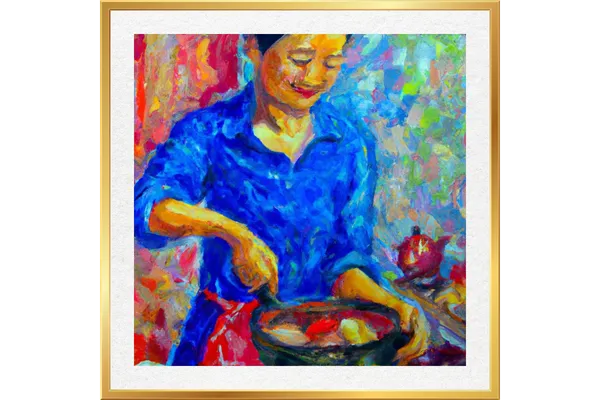
Becoming You: The Evolution of Self and Identity Awakening
"We all should know that diversity makes for a rich tapestry, and we must understand that all the threads of the tapestry are equal in value no matter their color."
- Maya Angelou
Parenthood, much like the grand symphony of life, presents its unique set of challenges and transformations. For some, it brings forth personal growth, while others grapple with the profound changes that come with this new role. As I reflect on my own life's journey, I couldn't help but wonder about the shift that occurred within me when I became a mother. Why did I feel like I had lost a part of myself? I was undoubtedly a loving and caring mom, but there was something different, something off. I realized it was the "mom's identity" awakening within me.
During childhood, typically from ages 1 to 7, our subconscious minds absorb various potential identities, which resurface as we navigate different roles in our lives. My mom identity was undeniably nurturing, but it also came with a heightened sense of fear and a reluctance to embrace new experiences. This stark contrast is what made it feel so different. The good news is that even if we've internalized characteristics that no longer serve us, change is possible. I wasn't just able to shed the undesirable traits of my "mom identity," but I also learned how to identify and transform undesirable traits in other aspects of my life, such as being a wife, daughter, and friend.
But before I share how you can become more aware of these undesired childhood characteristics, let's delve into the process itself.
How we become us
The Canvas of Childhood: Our early years serve as the canvas on which the intricate artwork of our identity begins to take shape. Neuroscience reveals that during this phase, particularly up to the age of seven, our brains operate in a hypnotic state. Children are akin to sponges, effortlessly absorbing the beliefs, behaviors, and values of those around them.
The Mirror Neurons: These incredible neural entities play a pivotal role in the construction of our identities. Mirror neurons are like tiny observers in our brains, continuously learning and mirroring the behaviors, emotions, and experiences of our caregivers. As children, we watch, we mimic, and we internalize these patterns, unknowingly shaping the core of our identities.
The Generational Echo: Often, it's not just our parents' actions and words that we inherit; it's their generational trauma too. These silent, inherited echoes may linger beneath the surface, and they can impact the way we experience parenthood and the way we experience other identities in us. The patterns of pain, resilience, and coping strategies passed down through generations become part of the tapestry of our identity.
The Art of Letting Go
As adults, we gain the gift of discernment. We begin to distinguish what serves us, bringing joy and progress, and what doesn't, often resulting in pain and suffering. The path forward is rooted in our ability to discern the beliefs or traits that no longer align with our hearts' deepest desires.
To truly liberate ourselves, we must ensure that our desires stem from our hearts, for the heart knows the most authentic path to fulfillment. To aid you in this exploration, here are some questions to contemplate, helping you identify those traits or beliefs that are out of sync with your heart's longing:
What beliefs or traits do I hold that hinder my growth and happiness?
How have these beliefs or traits affected my journey as a parent and in other facets of my life?
In what ways have these characteristics held me back from being my most authentic self?
With newfound clarity, it's time to release the bonds that no longer serve you. There are various avenues for letting go of past beliefs, fears, or personality traits that hinder your growth. My recommendation is to seek the support of a Trauma Release Coach, like myself, or a PSYCH-K practitioner, both of which I can guarantee swift results. However, if you're not yet ready to receive support, I understand, it's part of the process and that's perfectly fine. You can start by verbally or in writing renouncing the belief or trait, write from your heart preferably by hand. It's a sacred expression of your will. Then, you must take action, even when doubt or fear creeps in, affirming your commitment through action to this transformation. Example: If you let go of doubts then taking faster decisions is your attestation in actions.
Conclusion: Shaping Your Authentic Identity
As we conclude this profound exploration of the transformative journey into our identities, remember that you possess the extraordinary ability to craft your unique identity within the echoes of generational trauma. Embracing the challenges, acknowledging your past, and nurturing your healing, you have the power to mold a harmonious and authentic identity as a parent.
May your symphony of parenthood resound with love, growth, and the joy of crafting your own unique melody, both within and beyond the realm of parenting.
